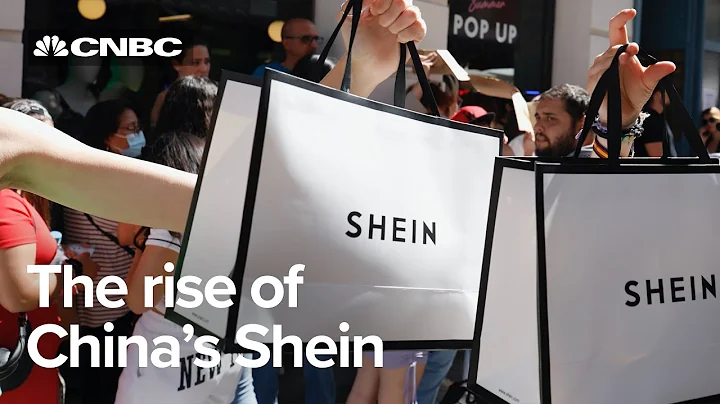Shein After becoming a business myth, the next upstarts of fast fashion are emerging. Some of them rely on the natural logistics channel advantages of giants, some have overwhelming marketing influence, and some have fashion positioning...
Fast fashion brand Shein was launched in 2008 Founded, by leveraging domestic strong manufacturing capabilities and a well-structured supply chain system, explosive growth began around 2016. Its sales last year were estimated at US$16 billion, and its new round of financing has valued it at nearly US$100 billion. The astonishing performance of
has surpassed that of many established companies. Although there are still many business model pressures and doubts behind the brilliant data, many domestic companies have sought to join and follow suit due to the interests of businessmen.
But among the new players, who dares to say that they will become the next giant? According to relevant research statistics from Vogue Business, at least 12 platforms on the market have been confirmed to be similar to Shein in terms of operating models, target markets and marketing strategies.
However, even Shein is not immune to market pressures. Its annual sales growth rate is also reportedly showing signs of slowing, falling to 60% from 250% in 2020. The intentions of the global young customer base are also related to Shein's subsequent sustainable development trends, including its environmental protection, which has also been criticized internationally.

So what are the specific newcomers to the fast fashion track? How do you plan to replicate Shein’s model?
It is reported that many newcomer platforms are created by executives of major groups or direct investment from large companies. For example, Jiayu Capital, founded by the former CEO of Alibaba , has invested a total of more than 100 million yuan in Cupshe, an e-commerce swimwear company focusing on exports. Like Shein, Cupshe originated in Nanjing. Its parent company is Nanjing Capexi Network Technology, which was established in December 2015 and focuses on cross-border e-commerce in Europe and the United States.
After Shein, the most famous name currently is Cider, which was founded by Wang Chen, co-founder of the fashion rental platform "Yi Er San", and is currently worth more than 1 billion US dollars. It completed four rounds of financing in its first year of listing, with international investors including DST Global, IDG Capital and Greenoaks Capital.
Also worthy of attention is Zaful, which was once an independent website brand under Global Tesco . In 2021, the Global Tesco building will collapse. Zaful will be spun off from the parent company and operated independently, which is also intended to be reborn with a new attitude. Zaful currently has a strong social media following, making it a significant player in the fast fashion space.
Others include Infinite Waves, a cross-border fast fashion e-commerce company from Beijing, which recently completed a US$100 million Series A financing and obtained an exclusive stake in Douyin ; the Allylikes platform is backed by e-commerce giant Alibaba , launched in October 2021 for the European and American markets; Zhiyu, founded in 2012, prefers to target other geographical markets, mainly focusing on the Middle East, with more than 800,000 Instagram fans, selling women's clothing, accessories, home furnishings, and maternal and child products products; there are also technology-driven enterprises, fast fashion website platforms focusing on original and independent designs, etc.

To imitate Shein, in short, the efficient and flexible supply chain, its clothing delivery cycle can be as short as 7 days;
data algorithm-driven management system can predict trends and promote instant response of the entire supply chain. By quickly tracking and analyzing users' browsing, click preferences and other behavioral information, popular trends are expected and quickly put into production;
overseas localization marketing and a strong emphasis on online celebrity marketing, as early as 2010, Shein cooperated with Instagram and Cooperate with KOLs on YouTube, and also vigorously use TikTok for marketing.
So among these new players, who is most likely to become Shein's strong opponent?
Judging from indicators such as financing, social media influence, development momentum, and user traffic and growth, Cider and Zaful can be said to be the two strongest candidates among current competitors. Cider has 62,000 followers on TikTok and 3 million followers on Instagram, and searches for Cider-related keywords on YouTube have seen some videos with more than 1 million views.
Zaful has a larger global social media presence, with 347,000 followers on TikTok and 5 million followers on Instagram.Zaful has also launched its platform in markets such as Portugal, France, Italy, Japan, Philippines, Spain and Germany. Zaful's YouTube views include two videos with over 10 million views.
Cider and Zaful are also as close as possible to Shein in terms of marketing methods and supply chain management. We also adopted the internet celebrity strategy, relying on users’ unboxing videos to gain influence and sign up with internet celebrities. Cider is currently building its brand community and has a dedicated group on some social platforms. Zaful participated in fashion weeks in London and New York to support sustainable fashion activities and continue to increase its influence.
Others such as Allylikes are still in their infancy, but they have the potential for rapid growth thanks to Alibaba’s cross-border logistics, channels and operational advantages. So competition still exists. This is the field of fast fashion. Everything can happen very fast. Maybe a dark horse will suddenly come out.





















